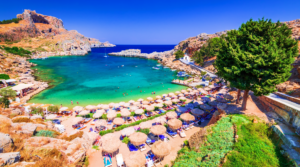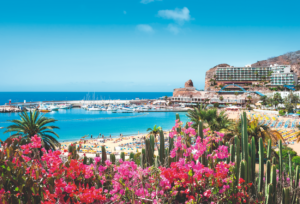It’s not ideal but we Brits have a bit of a bad reputation with languages, often taking the loudly and slowly approach to speaking to the locals while we’re on holiday. We all know that it’s more polite to try to speak the language, but some languages are notoriously difficult to learn at a moment’s notice. Especially Turkish.
That’s why we’ve put together 15 essential phrases, so if you’re last minute holiday to Turkey is round the corner, make your next holiday that little bit easier. Just bookmark or print the page to start speaking the lingo like a local.
- Hello – Merhaba (mehr-hah-bah)
Saying hello is definitely something you should know when you go on holiday. From greeting the people in your hotel to making a good first impression with a shopkeeper, a simple hello is always appreciated. For a more casual, “Hi” you might hear “Selam” (seh-lahm) instead.
- Please – Lütfen (loot-fen)
Ps and Qs can go a long way when you’re in a foreign land. The use of this one is fairly self-explanatory – we’re all taught from a young age the importance of saying please (and thank you), and being on holiday is no exception.
- Thank you – Teşekkür ederim (te-sh-qu-err ed-err-im)
It’s always good to say thank you and the proper response is, “Birşey değil” (beer-shey dey-eel) which means, “You’re welcome”.
- Welcome – Hoş Geldiniz (hosh gel-din-iz)
This is the greeting that you’ll often hear when entering a shop or restaurant. The literal translation is, “You came well” and it’s polite to respond with, “Hoş bulduk” (hosh bull-duk) meaning, “We found well”.
- How much is it? – Ne kadar (nay kad-ar)
A vital phrase if you’re planning on hitting the markets! And don’t forget to haggle. In most places – aside from the obvious fixed-price locations like supermarkets and chemists – shopkeepers will expect it from you.
- My name is – Ismim (ees-meem)
An easy and useful phrase to remember, this is how you reply if you’re asked, “Isminiz nedir?” (ees-mee-neez neh-deer).
- Excuse me – Afedersiniz (ahf-eh-dehr-see-neez)
In the interests of being polite, this phrase is vital. “Pardon” will also do if you’re just trying to get past someone or catch someone’s attention, but it’s much more curt.
- Goodbye – Hoşçakal (hosh-cha-kal) or Güle güle (goo-leh goo-leh)
There are two ways of saying goodbye in Turkish, but be careful because they’re not interchangeable. “Hoşçakal” is said by the person leaving, and, “Güle güle” is said by the person staying behind.
- Can you help me? – Yardim edebilir misiniz? (yar-dim ed-ebb-ill-eer miss-in-iz)
Being able to ask someone for help, whether it’s for directions, or something more serious never goes amiss on holiday.
- I don’t understand – Sizi anlamiyorum (si-zi ann-la-ma-yor-um)
If you’re getting stuck, it’s best to admit that you don’t understand what someone is saying to you. You could also ask them to please repeat themselves if you think that would be helpful – “Şunu tekrar edebilir misiniz?” (shu-nu tek-ra ed-ebb-ill-eer miss-in-iz).
- Yes/No – Evet/Hayir (ev-et/hi-eer)
Of course you need to know how to say yes and no, and what they sound like if you hear them – and it’s as simple as that.
- Where is the bathroom? – Tuvalet nerede? (too-wa-let ner-rey-dey)
Everyone should know this practical phrase, especially in an unfamiliar location. For a more formal touch, start with the phrase “Excuse me” as described above.
- I’m sorry – Özür dilerim (ooz-ur dill-eer-im)
Sometimes it’s necessary to apologise, even when you’re on holiday.
- How are you? – Nasilsiniz? (nah-sihl-sin-iz)
It’s good to ask how people are and if you hear this phrase in Turkey, you can respond with, “Iyiyim,” (ee-im), which means, “I’m fine”. If you’re getting confident, you can follow up with, “Sen nasilsiniz?” meaning, “And you?” but, if you’re not feeling very well, you can reply, “Çok iyi değil” (chok eeyi dey-eel) instead.
- Do you speak English? – Ingilizce biliyor musunuz? (een-gee-leez-jeh bee-lee-yor moo-soo-nooz)
Of course, no language guide would be complete without a fallback option! Try to use it sparingly if you want to make the most of your new language skills.
And while you might not feel it, speak with confidence and enthusiasm. One thing you’ll learn during your holiday in Turkey is that the people are friendly and welcoming – they’ll appreciate the effort and help you overcome the language barriers.






